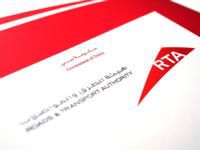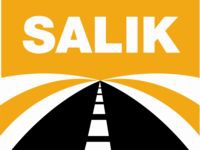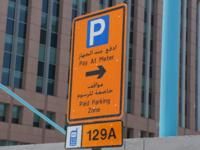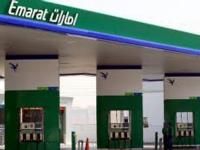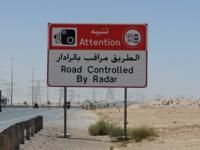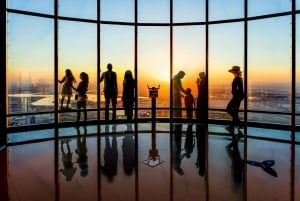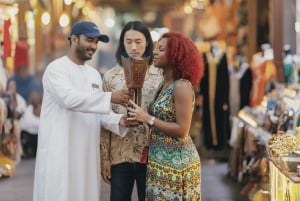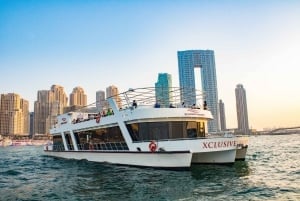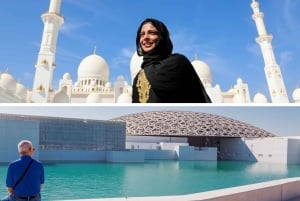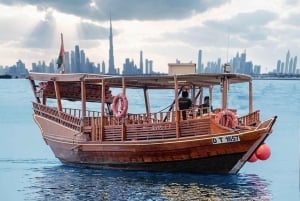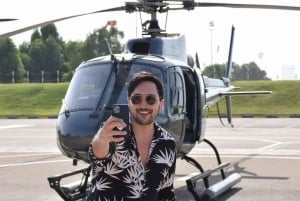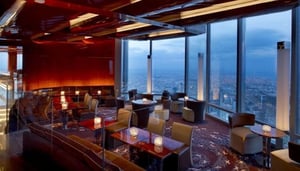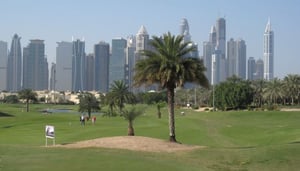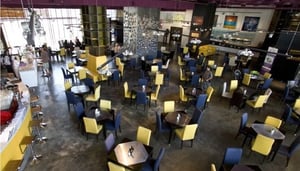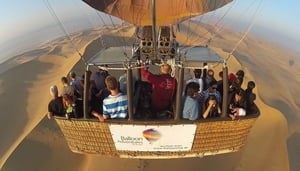Driving in Dubai
Do you need to rent a car when visiting Dubai? The answer is no. Public transport is quite reliable and not very expensive. The widely acclaimed Dubai Metro system, though not very intricate, does reach the main areas and attractions in Dubai. Its services extend into neighbourhoods via the Feeder Bus system which connects arteries with each metro station to provide all residential and business areas with ample coverage and accessibility. However, should you wish to spend a day outside the city or visit any of the neighbouring emirates, we recommend you hire a car for the day.
Driving in Dubai is relatively easy for newcomers and visitors due to the impressive network of roads and highways. Driving is on the right hand side. There are plenty of road signs indicating routes, areas, districts, exits and attractions. Sometimes it is confusing which lane to take as there are so many lanes in any one direction on major motorways, so keep your eyes peeled for road signs and always plan ahead while you navigate the busy city streets.
Most of the car rental companies facilitate airport pick up and drop off. Many also have desks at most large hotels where you may arrange for a car rental.
To rent a car you need to present a valid international driving license or a driving license from your country of residence. License holders from certain countries can hire vehicles or drive ones belonging to their first-relation family members (i.e. brother, sister, son, daughter, father or mother) throughout their visit. This list of 36 approved countries as per the transportation authority includes the following countries: Australia, Austria, Bahrain, Belgium, Canada, Denmark, Finland, France, Germany, Greece, Ireland, Italy, Japan, South Korea, Kuwait, Netherlands, New Zealand, Norway, Oman, Poland, Portugal, Qatar, Romania, Saudi Arabia, South Africa, Spain, Sweden, Switzerland, Turkey, United Kingdom and United States (call RTA on 8009090 for any changes to this list). The UAE has a minimum driving age of 21 years.
Generally, insurance offered by car dealers and rental firms is pretty competitive. If you want to shop around, you can check some of the more popular insurance companies operating in Dubai. Whatever you decide, ask whether the deal covers the entire region or just the UAE. Insurance restricted to the UAE will be cheaper. If you are under 25 years old or have only held a driving license for a short time, you are likely to find your insurance premium will be higher. That said, it is always advisable to get full coverage insurance.
Salik (meaning open or clear) is Dubai's automated road toll system. With no physical booths or barriers, it is designed to ease traffic congestion on Dubai's arterial roads.
Every car must have a Salik tag to pass the toll point without a fine. Using radio frequency, the system will automatically deduct an amount from your prepaid account each time you pass through. You can get a Salik tag from selected petrol stations (look for 'Get your Salik tag here' signs near most stations). A nominal charge of AED 4 is deducted each time you pass through the toll gate, capping off at maximum daily limit of AED 24. This means that any journeys exceeding this daily threshold will not incur additional charges.
Toll gates are scattered around the city in six strategic locations. These are: Al Garhoud Bridge, Al Maktoum Bridge, Safa Park (near Business Bay), Al Barsha (near Mall of the Emirates), Airport Tunnel and two points on Al Ittihad Rd. in Mamzar.
If you go through a toll with no credit on your account and do not recharge within two days, you will be fined for each toll you went under. Don't worry though, you will receive a helpful SMS reminder when your account balance is low, so you can top-up at the Salik website or buy a scratch card from any petrol station. If you are renting a car, check your rental agreement on terms of payment for Salik.
You can get more information on Salik by contacting the RTA on one of these numbers: local toll free: 800-SALIK (72545) or international: +971 4 233 5000.
Many areas in the city center have introduced paid parking in a bid to reduce congestion. Prices are reasonable at AED 1 or AED 2 for a one-hour stay, depending on the location, but this hasn't made it easier to secure a space. Paid parking areas are operational at peak times which are usually from 8 am to 1 pm and 4 pm to 9 pm, and are free outside these hours and on Fridays and public holidays.
Petrol in Dubai is relatively cheap compared to petrol in other parts of the world. There are 24-hour petrol stations on all major highways. Most petrol stations also have convenience stores, rest areas and service bays should your vehicle require some TLC after a long journey.
In the event of an accident, you must call Dubai Police to the scene (dial 999). Insurance companies will not accept claims without seeing an accident report. A police officer arriving at the scene will issue one of two slips to parties involved in an accident. A green form will absolve you of responsibility and should be taken to your insurance company or rental agency, while a pink form puts the blame on you. The other driver can then charge any repairs to your insurer. It goes without saying that you should present your case clearly and calmly to the attending officer. Generally, police respond adequately to accident calls, which is why you are advised to refrain from moving your vehicle from the scene until an officer has instructed you to do so.
There is zero tolerance for driving after the consumption of alcohol. It is therefore a criminal offence in the UAE to drink and drive no matter how small the amount. This means that if you are involved in an accident while driving under the influence, your insurance is likely to be invalidated, leaving you to pay the claims of other parties involved in the accident. You also risk imprisonment and payment of hefty fines. Persons involved in an accident in which another party is injured automatically go to jail until the injured person is released from the hospital. Should a person die in a traffic accident, the driver of the other vehicle is liable for payment of compensation for the death.
Offensive gestures and bad language used at other drivers can lead to fines, a jail sentence and possibly deportation. So exercise restraint and keep your calm in the unlikely event that you are provoked on the road.
The use of front seat belts is mandatory in the UAE.
Using a mobile phone while driving can get you fined if spotted by a police officer - not to mention the danger it poses to your fellow motorists. Making a right turn on a red light is not permitted unless otherwise indicated and digital cameras are used extensively on Dubai roads for registering traffic violations, including speeding.
Driving standards in Dubai are not always as disciplined as in other developed countries and the corresponding rate of traffic accidents is significantly higher. Speeding is common in Dubai and although tailgating is illegal, it does happen frequently. Flashing your lights in the UAE can mean a driver is coming through, rather than giving way. The use of indicators remains a challenge for many drivers even though every vehicle is equipped with this standard option. Authorities are increasing their efforts to address road safety and have launched several campaigns to curtail speeding and reckless driving, including issuing black points and confiscating vehicles belonging to repeat offenders.
One fact that most road users tend to forget is that they share the road network with over 200 nationalities, which necessitates adjusting to as many driving styles and interpretations of road rules. So keep this in mind as you set off behind the wheel on Dubai's bustling streets.
A word to the wise: Drive within the speed limits, always use your signal indicators (they are your sole communication tool with other drivers), buckle up and be considerate toward your fellow motorists. After all, everybody wants to get somewhere safely. Happy, safe motoring...


